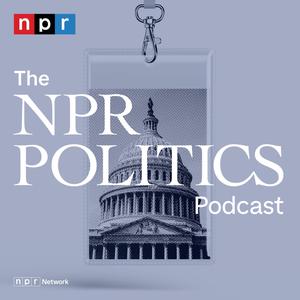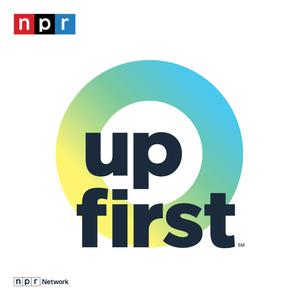
Broken Ground
Southern Environmental Law Center
Broken Ground is a podcast produced by the Southern Environmental Law Center digging up environmental stories in the South.
- 14 minutes 3 secondsRural Justice: The Power of Coalitions
This season of Broken Ground we spend time in the rural South with the people who call it home. Often celebrated for the quiet life close to nature, and a region that defines many perceptions of the South, it’s also a place polluting industries target, betting what they do will be out of sight and out of mind. Sometimes these polluters are even invited to town by local officials eager for economic engines. But in each community we visited, we met small town neighbors who summoned their nerve and rallied together to become a powerful force. Coalitions built small wins into a mighty wave, shifting tides and determining their destiny. Hear their stories this season on Broken Ground.
19 December 2024, 7:00 am - 34 minutes 57 secondsThe Landfill Next Door
We don’t spend a lot of time thinking about where our trash ends up but, when you live next door to a landfill, you don’t have that luxury. The burning smell of chemicals, the flocks of circling vultures, the constant rumble of truck traffic and the accompanying exhaust are just the most obvious impacts of living near acres of garbage, especially when that garbage isn’t managed properly. Neighbors in rural eastern North Carolina never wanted any of this. They were told, back when plans were first floated to expand the county dump, that they wouldn’t have to worry about a massive future expansion or the arrival of toxic trash. So, when the footprint grew into the largest landfill in North Carolina and there was evidence that dangerous waste was making its way into the community’s water supply, residents took legal action, and made history in the process.
10 December 2024, 8:00 am - 40 minutes 49 secondsAfter the River Rises
"Inland flooding" was a phrase that often needed explanation. Now all you need to say is "Helene". The storm that ravaged Appalachia was a stark reminder of a phenomenon that’s becoming more and more common – residents living far from the coast watching as their local river jumps its banks and inundates yards, homes, and businesses. For small towns with even smaller budgets, disasters like this can accelerate a community's decline. But in Fair Bluff, North Carolina, town officials have responded to two devastating downtown floods with some innovative ideas and lots of outside help. Now, the town is on a new path, holding a ribbon cutting for its newly-constructed "Uptown", and providing a model for one way to manage the long process of flood recovery. Rebuilding in the wake of a flood takes time, money, creativity, and community. Join us to hear how one town is putting those to good use.
1 November 2024, 8:00 am - 34 minutes 14 secondsThe Wood Pellet Paradox
How can a power source that creates more climate warming emissions than coal be called renewable? This is the paradox of wood pellets, a type of biomass being burned at industrial scale to produce electricity overseas. And it’s not just the global climate that’s paying the price for this greenwashing. Pellet producers are fanning out across the southern U.S., razing forests, and wreaking havoc in communities forced to host their polluting facilities. So what happens when one neighborhood decides to stand its ground and push for stronger protections? Meet the Southerners who finally got the pellet industry to listen.
10 October 2024, 8:00 am - 33 minutes 35 secondsThe Fishers' Right To Know
Is that fresh-caught fish safe to eat? In too many rivers across the rural South, the answer is a hard 'no.' Failing sewage systems, agricultural runoff, and politically powerful polluters have all contributed to worrisome water quality in some of our most treasured southern waterways. And, too often, state regulators are little help. It begs the question: Do people enjoying that water have a right to know what's in it? The team at Coosa Riverkeeper in Alabama has answered that question with a resounding 'yes.' Listen to learn how they're using every tool in their tacklebox to ensure folks understands the risks, and many rewards, of enjoying Alabama's beautiful and biodiverse waterways.
19 September 2024, 8:00 am - 32 minutes 8 secondsThe Strip Mine and The Swamp
To call the Okefenokee swamp a treasure is to undersell just how special this watery world is. Tucked into the rural southeast corner of Georgia, this 438,000-acre swamp is one of the most ecologically intact places in our nation. Its shallow black waters not only provide habitat to a menagerie of flora and fauna, but also contain a massive peat-filled carbon sink – on a planet desperately in need of one. But now a private company with a checkered past is preparing to mine for minerals on the swamp's edge. Will a growing group of Okefenokee advocates be able to stop the mine and preserve the swamp for generations to come?
Photo credit: Joel Caldwell5 September 2024, 4:00 am - 24 minutes 18 secondsJonathan Vigliotti on Connecting the Climate Dots
CBS News journalist and author Jonathan Vigliotti joins Broken Ground host Leanna First-Arai to dig into his on-the-ground coverage of breaking climate stories across rural America, particularly in the South. Vigliotti translated this experience into the book Before It's Gone: Stories From the Front Lines of Climate Change in Small Town America, published in April 2024.
8 August 2024, 8:00 am - 30 minutes 25 secondsCornell Watson on Justice Through Photography
Photographer Cornell Watson's images recognize the camera can be a tool for connection, and action. Whether its pollution from hog farms, efforts to gut Black neighborhoods, or racism at the state’s flagship university, Watson's lens points us to see what so many choose to ignore.
28 September 2023, 7:00 am - 28 minutes 32 secondsVictoria Bouloubasis and Paola Jaramillo on Bridging Language Barriers
Whether its natural disasters or shifting political winds, Victoria Bouloubasis and Paola Jaramillo make sure Spanish-speakers in North Carolina have access to it. Ensuring that access fuels their work as a reporter and editor, respectively, at Enlace Latino NC. The outlet uses traditional journalism, podcasts, WhatsApp, social media and comics to connect North Carolina's Spanish speakers to each other and the news around them.
14 September 2023, 7:00 am - 27 minutes 7 secondsCameron Oglesby on Collecting Community Stories
Listen to environmental journalist Cameron Oglesby discuss how highlighting Black joy and centering community narratives in her writing drives action.
31 August 2023, 7:00 am - 29 minutes 15 secondsLyndsey Gilpin and Tajah McQueen on Empowering Community Reporters
Hear what spurred the founding of Southerly, an online publication focused on environmental justice, and how it evolved from more traditional reporting to an outlet focused on putting reporters’ tools in community hands.
17 August 2023, 7:00 am - More Episodes? Get the App
Your feedback is valuable to us. Should you encounter any bugs, glitches, lack of functionality or other problems, please email us on [email protected] or join Moon.FM Telegram Group where you can talk directly to the dev team who are happy to answer any queries.
 The NPR Politics Podcast
The NPR Politics Podcast
 Code Switch
Code Switch
 The Daily
The Daily
 Up First from NPR
Up First from NPR
 Throughline
Throughline
 Short Wave
Short Wave